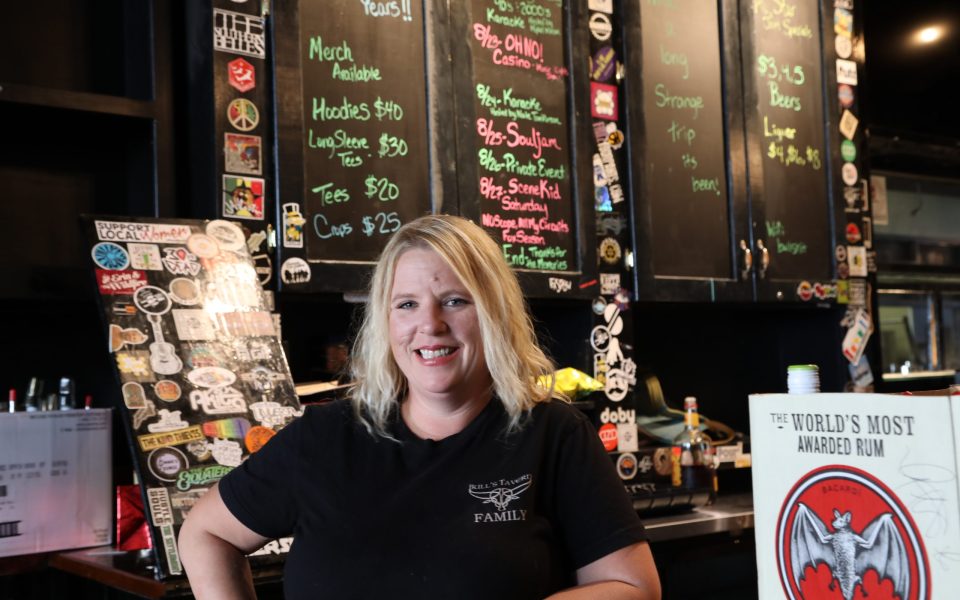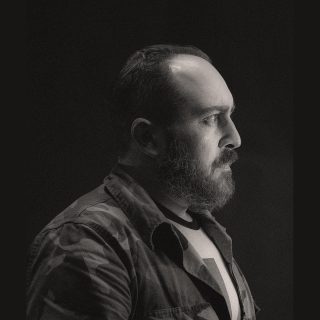Decades come and go; they can fly by in an instant. One day, you’re off work on a Friday night, charging from bar to bar, talking your way into shows, shots and other people’s beds. The next, you find yourself in a quaint, ranch-style house with a well-groomed yard and you start to understand what David Byrne was laying down oh so many years ago: “This is not my beautiful house! This is not my beautiful wife!” That’s if you’re lucky. A lot can happen in a decade, flitting as it may be.
Danielle Bull arrived on the scene a decade ago; this week she is hanging up her hat and her spurs shall jingle jangle no more. Not on 4th Street, at least. In 2012, Bull opened Bull’s Tavern next to Recreation Billiards, which opened in 1947, further cementing the block as a quintessential part of Winston-Salem’s nightlife. Rec had become a smokey, divey pool bar over the decades with old “Winston-Salem Street Scene” posters plastered on the walls, where shady locals (myself included) drank underneath the dilapidated sign that used to hang outside (It now hangs over the bathrooms). The owners have recently thrown some money into it and cleaned it up for the new young blood that was starting to come downtown. They saw potential in what 4th Street could attain again, as did Bull.

By the time Bull acquired the spot, it had gone through a few failed iterations as a downtown bar. It was formerly Club Mod and before that, Speakeasy Jazz, and when Bull took it over in 2012, downtown felt different. We didn’t have Innovation Quarter or Industry Hill at the time. It wasn’t quite the Wild-West-Punk-Club-Winston of the nineties, but the Money (outside investors, developers, politicians, robber barons) wasn’t fully aware of what was happening there either. It was still possible for a single person of limited means to open a sizable bar across the street from the Stevens Center, and so she did.
“I was 29, and at a crossroads in life,” she says. “I thought back to the days when I bartended and how happy it made me.”

Bull had a corporate job but had grown bored. Taking a cue from other small venues, she had a “vision of creating a ‘music bar’ with the community feel of a bar and the production quality of a venue.”
“I never had an investor or partner,” she says, “which was probably a mistake on my part… I was also so determined to execute my vision, I don’t think it would’ve worked for the best anyway.”
I remember her father, Darrell, doing maintenance when Bull’s was first opening. He built the bar and the weathered polished tables with wood from an old train car. He made the cabinets behind the bar, the various stages throughout the years, the signs over the stage. He’d join customers on some days and act as a sort of goodwill ambassador over drinks.
“He never wasted even an inch of material and made a lot from scrap,” Bull says. She sends over a few pictures of a proud father helping, building, smiling in the early days of the tavern.

As Bull’s increased in popularity, Winston-Salem’s nightlife expanded as well. The bar never went without live shows for too long and as other small venues closed, it remained viable and thriving. It was a place to pop in for a karaoke bout, to see a new traveling band or an old favorite. It was also a place to grab a quick drink during an intermission of Bizet’s Carmen across the street or a shot to calm the nerves before a blind date.
Doug Davis, a longtime Winston musician with the Plaids and Vagabond Saints Society, among others, said in a tribute post on Facebook that they went on to “play some [their] favorite shows at Bull’s, including a semi-regular tradition of Anti-Valentine and Halloween shows.”
This past week has been a bittersweet revival of what made Bull’s special. Many supporters, former employees, bands who’ve played over the years, couples who met there, the downtown bar community, have all made appearances to celebrate that little corner of the world. The patrons represent these microcosms of culture. The main regulars act almost as ambassadors when they visit other bars in the area. They can make alliances, trade goods, and even start wars with the new businesses down the street who call them “ the poors,” or “those bastards.” It’s a badge of honor.

You can claim a bar as your own. You can love it like your own. You can be as much a part of it as you can stand. Some bars serve as a surrogate family for those without one, or as a pressure release from your actual one. When it’s done right, a bar like Bull’s has a purpose for every person that walks through the door. It’s yours to fiercely defend, to celebrate in, or it can be a place to mourn losses. The finality of Bull’s isn’t mournful to Bull. It’s a meaningful end to something that was inherently good.
The final shows were a celebration of the joy and camaraderie that everyone experienced there over the years. Bull got up and thanked the crowd on Saturday night with some memories, shout-outs, and some promises.
“Don’t be sad because something is coming to an end,” she says, “Be glad it happened.”
The crowd roared in approval, and continued to party.
Join the First Amendment Society, a membership that goes directly to funding TCB‘s newsroom.
We believe that reporting can save the world.
The TCB First Amendment Society recognizes the vital role of a free, unfettered press with a bundling of local experiences designed to build community, and unique engagements with our newsroom that will help you understand, and shape, local journalism’s critical role in uplifting the people in our cities.
All revenue goes directly into the newsroom as reporters’ salaries and freelance commissions.


Leave a Reply